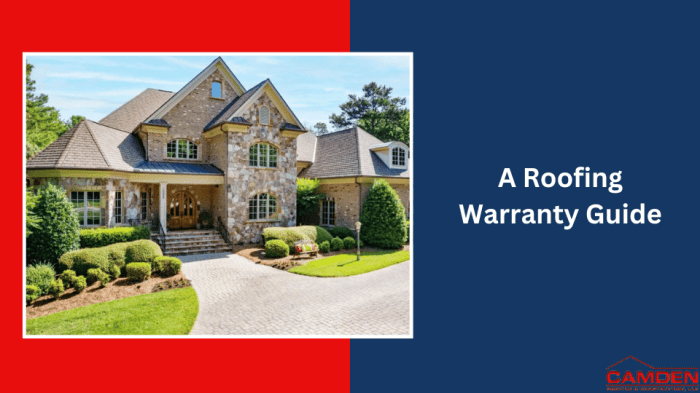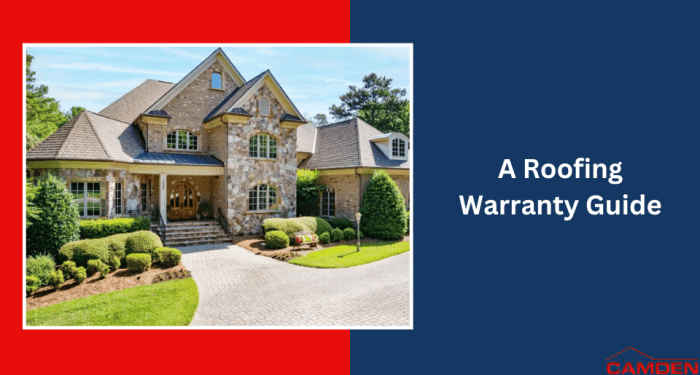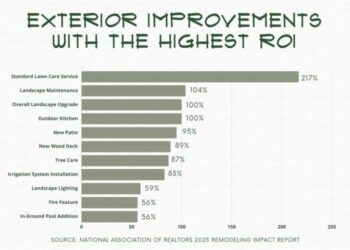Roofing warranty options are a crucial aspect of any homeowner's investment in their property. Understanding the various types of warranties available, factors to consider when choosing one, and how to maximize its benefits can make a significant difference in the long-term maintenance and protection of your roof.
This guide delves into the intricacies of roofing warranty options, shedding light on key considerations and best practices for homeowners.
When it comes to protecting your home, knowing the ins and outs of roofing warranties can provide peace of mind and financial security. Let's dive into this important topic together.
Types of Roofing Warranty Options

When it comes to roofing warranty options, there are a few key types to consider. Understanding the differences between these options can help you make an informed decision when choosing the right warranty for your roof.
Manufacturer Warranties vs Contractor Warranties
Manufacturer warranties are provided by the company that produces the roofing materials. These warranties typically cover defects in the materials themselves, such as leaks or premature deterioration. On the other hand, contractor warranties are offered by the installation company and cover the workmanship of the installation.
It's important to note that contractor warranties may vary in length and coverage, so be sure to review the terms carefully.
Common Warranty Options
- Material Warranty: This type of warranty covers defects in the roofing materials used. It typically guarantees that the materials will perform as expected for a certain period of time.
- Workmanship Warranty: A workmanship warranty covers the installation of the roof and ensures that the work was done correctly. This type of warranty is usually provided by the contractor.
- Extended Warranties: Some companies offer extended warranties that provide additional coverage beyond the standard material and workmanship warranties. These extended warranties may include protection against specific types of damage or defects.
Factors to Consider When Choosing a Roofing Warranty
When selecting a roofing warranty, homeowners should carefully consider various factors to ensure they are getting the best protection for their investment.
Warranty Length
The length of a roofing warranty is a crucial factor to consider. Longer warranties typically provide more coverage and peace of mind for homeowners. It is essential to look for warranties that offer coverage for a substantial period, ideally covering the expected lifespan of the roof.
Coverage Exclusions
Understanding what is included and excluded from the warranty coverage is vital. Homeowners should carefully review the warranty terms to identify any exclusions that could impact their coverage. Common exclusions may include damage from natural disasters, improper maintenance, or unauthorized repairs.
Transferability
The transferability of a roofing warranty is another key consideration. A transferable warranty can add value to the home when selling, as it provides assurance to potential buyers. Homeowners should check if the warranty can be transferred to a new owner and what the process entails.
Impact of Climate, Roof Material, and Installation Method
The climate, roof material, and installation method can significantly impact warranty options. For example, homes in areas prone to severe weather may require additional coverage for wind or hail damage. Different roofing materials have varying durability and may affect the warranty terms.
Additionally, the quality of installation can influence the warranty validity, as improper installation may void the coverage
Understanding Warranty Coverage

When it comes to understanding roofing warranties, it is essential to know what is covered and what is not covered under a standard warranty. This information can help homeowners make informed decisions and avoid any surprises in the future.Typically, a standard roofing warranty covers defects in materials or workmanship for a specified period.
This means that if your roof experiences any issues due to faulty materials or improper installation during the warranty period, the manufacturer or contractor will be responsible for repairing or replacing the roof.
What is Typically Covered
- Defects in materials
- Defects in workmanship
- Water leaks
- Roof failure
Common Exclusions
- Damage from natural disasters (e.g., hurricanes, earthquakes)
- Damage from lack of maintenance
- Normal wear and tear
- Damage from unauthorized repairs or alterations
Interpreting Warranty Terms
When reviewing a roofing warranty, it is crucial to carefully read and understand the terms and conditions. Pay attention to any exclusions, limitations, or requirements that may affect the coverage provided. If you have any questions or are unsure about any part of the warranty, don't hesitate to seek clarification from the manufacturer or contractor.
It's better to fully understand the warranty upfront than to be caught off guard later on.
Tips for Maximizing Roofing Warranty Benefits
When it comes to maximizing the benefits of your roofing warranty, there are a few key tips to keep in mind. By taking proactive steps, homeowners can ensure that their warranty remains valid and that they are able to make the most of the coverage provided.
Regular Roof Maintenance and Inspections
Regular roof maintenance and inspections are crucial for maximizing the benefits of your roofing warranty. By keeping up with routine maintenance tasks such as cleaning gutters, removing debris, and inspecting for any signs of damage, you can catch potential issues early on and prevent them from escalating.
This not only helps to extend the lifespan of your roof but also ensures that your warranty remains valid.
Documenting Repairs and Communicating with the Warranty Provider
Another important tip for maximizing roofing warranty benefits is to carefully document any repairs or maintenance work that is done on your roof. Keep detailed records of the work performed, including receipts, invoices, and any communication with contractors. This documentation can help to prove that you have followed the terms of the warranty and can be crucial in the event of a claim.
Additionally, make sure to communicate any concerns or issues directly with the warranty provider to ensure that you are following the correct procedures and that your warranty remains intact.
Final Conclusion
In conclusion, roofing warranty options offer homeowners a safety net against unforeseen roof issues and repairs. By making informed decisions, considering crucial factors, and following recommended practices, you can ensure that your roof remains well-protected for years to come. Stay informed, stay proactive, and enjoy the peace of mind that comes with a reliable roofing warranty.
Essential Questionnaire
What is the difference between a manufacturer warranty and a contractor warranty?
A manufacturer warranty covers the materials used in roofing, while a contractor warranty typically covers the workmanship of the installation. It's essential to understand both types of warranties for comprehensive coverage.
How do climate and roof material affect warranty options?
Climate and roof material can impact warranty options by influencing the longevity and performance of the roof. For example, certain materials may have specific warranty requirements based on the region's weather conditions.
Why is regular roof maintenance important for maximizing warranty benefits?
Regular roof maintenance helps identify issues early, preventing larger problems that could void your warranty. By staying proactive with maintenance, you can ensure that your warranty remains valid.














